2017 Public Health Ethics Forum Speakers and Planning Committee Members
Drue H. Barrett, PhD, CAPT, US Public Health Service
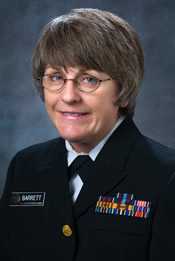
Dr. Drue Barrett is the Lead of the Public Health Ethics Unit and the Chair of the CDC Public Health Ethics Committee (PHEC). The Public Health Ethics Unit has been working to strengthen infrastructure in public health ethics at CDC by sponsoring training and offering a public health ethics consultation service. Under her leadership, the Public Health Ethics Unit has also developed training in public health ethics for local health officials, including a public health ethics casebook (published as an open access book by Springer Press in April 2016). Prior to assuming the role as the Public Health Ethics Lead, Dr. Barrett served for many years on CDC’s Institutional Review Boards (IRB), and chaired one of the IRBs. Other positions she has held at CDC include Acting Associate Director for Science in the National Center for Environmental Health/Agency for Toxic Substances and Disease Registry and Director of the Veterans Health Activity in the National Center for Environmental Health. Dr. Barrett received her Ph.D. in clinical psychology in 1990 from Georgia State University. She also completed two years postdoctoral training in epidemiology and public health through CDC’s Epidemic Intelligence Service program in the Cardiovascular Health Studies Branch of the National Center for Chronic Disease Prevention and Health Promotion.
Karen Bouye, PhD, MPH, MS
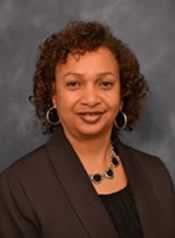
Dr. Karen Bouye is the Senior Advisor for Research/Health Scientist at the Centers for Disease Control and Prevention (CDC) in the Office of Minority Health and Health Equity. In her role at the CDC, she serves in the planning, designing and coordination of various research and evaluation projects related to health disparities and health equity among racial/ethnic minority population groups. She has worked on the Affected/Vulnerable Populations Team in the CDC Emergency Operations Center for the past four years as well as the Pandemic Influenza Workgroup for Vulnerable Populations. Dr. Bouye has over 25 years of experience in the public health field. She received her undergraduate degree from Tennessee State University, a Masters Degree in Public Health at Emory University; as well as a Masters of Science and Doctor of Philosophy at the Ohio State University.
Nilka Ríos Burrows, MPH
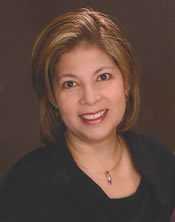
Nilka Ríos Burrows, MPH, received her Master of Public Health in 1989 from the University of Puerto Rico. She joined CDC in 1992 and since 1997 has worked as an epidemiologist with CDC’s Division of Diabetes Translation (DDT). When she first joined DDT, she was part of DDT’s Surveillance Team, performing public health surveillance of diabetes and its complications. During her first 10 years with DDT, she also worked with the Division of Diabetes Treatment and Prevention of the Indian Health Service on diabetes surveillance among American Indians and Alaska Natives. Now she is the Lead of CDC’s Chronic Kidney Disease Initiative, collaborating with partners on surveillance and epidemiology activities related to kidney disease to provide public health strategies for promoting kidney health. She has received awards for her work in developing the National Diabetes Statistics Report (formerly known as the National Diabetes Fact Sheet) and in bringing national attention to the growing public health problem of diabetes and obesity in children and adolescents. She is the author or coauthor of more than 80 publications, including several articles highlighting racial and ethnic disparities in diabetes and in kidney failure. Her latest surveillance work documents progress in reducing the rate of new cases of kidney failure among people with diabetes.
Dázon Dixon Diallo, DHL, MPH
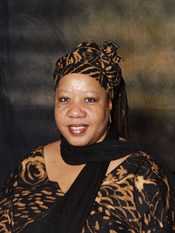
Dázon Dixon Diallo is a recognized visionary and advocate in the struggle for women’s human rights and reproductive justice, and the fight against HIV/AIDS, on behalf of communities of women living with HIV and those at risk for HIV and STIs. Dr. Diallo is Founder and President of SisterLove, Inc, established in 1989, the first women’s HIV/AIDS and RJ organization in the southeastern United States. She is a proud member of In Our Own Voice: The National Black Women’s Reproductive Justice Agenda, where she advocates for sexual and reproductive justice in public health and prevention policies and programs. Dr. Diallo is a member of the Board of Directors of the National Women’s Health Network, and she is a founding member of the 30 for 30 Campaign for Women in the National HIV AIDS Strategy. Diallo serves on the Fulton County HIV Advisory Board, and is a co-chair for the Act Now End AIDS national coalition. Diallo was recently appointed to the NIH Office on AIDS Research Advisory Council. She has secured deep reach into a diverse local and regional community, for more than twenty-three years, as she has hosted a weekly radio program focused on black women, called “Sisters’ Time” on WRFG 89.3FM and www.wrfg.org in Atlanta. Dr. Diallo holds a master’s degree in public health from the University of Alabama at Birmingham (C’97) and bachelor’s degree from Spelman College (C’86) in Atlanta. In 2012, Dr. Diallo had the distinct honor to receive an honorary Doctorate of Humane Letters from her alma mater, Spelman College.
Diallo has pioneered in the women’s HIV/AIDS and reproductive justice arena by: developing and implementing “Healthy Love”, a seminal prevention intervention that is now a part of the CDC’s National Compendium of Effective Evidence-based HIV Prevention Interventions; establishing the first transitional housing program for HIV positive women and children in the South; and engaging a long-term vision for HIV positive women’s leadership in the fight against HIV/AIDS and in promoting women’s human rights. She currently convenes the only national coalition of women focused on HIV and biomedical prevention, the US Women & PrEP Working Group. Since 1999, Dixon Diallo opened a SisterLove program in South Africa where they are currently an implementer with the DREAMS Innovation Challenge, a public-private partnership led by the President’s Emergency Plan for AIDS Relief. The project focus is capacity building and program development for local women-led HIV/AIDS organizations. She has received numerous awards and recognitions over the 32 years she has been working in HIV/AIDS, and women’s health and human rights.
Joan R. Harrell, DMIN, MDIV, MS
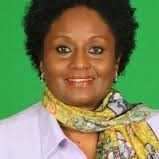
Joan R. Harrell, DMIN, MDIV, MS is an ordained American Baptist minister, communications ethicist, public affairs strategist and public theologian. She is an award-winning broadcast journalist and former Columbia University Graduate School of Journalism Alfred I. duPont Fellow. Dr. Harrell is a Visiting Scholar and Associate Director of the Community Engagement Core at the National Center for Bioethics in Research and Health Care at Tuskegee University where within the context of narrative ethics, she collaborates with the descendants of the United States Public Health Service Syphilis Study at Tuskegee, to teach them how to tell their stories of pain, suffering, transformation and hope in the public domain. In addition, she was the Director for the 2017 Ethical Implications for a Culture of Health in the Deep South Conference, funded by the Robert Wood Johnson Foundation, is the Senior Associate Editor for the peer reviewed Journal of Healthcare, Science and the Humanities and the content designer and developer for Tuskegeebioethics.org and its mobile app.
Kathy Kinlaw, MDiv
Kathy Kinlaw is Associate Director of the Emory University Center for Ethics and Director of the Center’s Program in Health, Science, and Ethics. She is an Assistant Professor of Pediatrics, Emory School of Medicine; and Director of the Healthcare Ethics Consortium.
Kathy co-directs integration of Clinical Ethics into the School of Medicine’s curriculum. She led the development of the Master of Arts in Bioethics degree program at Emory, and teaches core courses for the program. She currently serves as chair of the Emory University Hospital Ethics Committee and member of the Advisory Committee for EBICS (Emergent Behaviors of Integrated Cellular Systems). Kathy co-chairs the Ethics/Legal Workgroup for the HRSA-funded, Georgia Department of Public Health HIV Health Information Exchange Challenge Grant. She has served on the CDC Ethics Subcommittee of the Advisory Committee to the Director, the Committee on Ethics and Professionalism of the Federation of State Medical Boards, and the Georgia Composite Medical Board. She has been active in legislative efforts, providing bioethics guidance regarding the Georgia Advance Directive for Healthcare, revision of the Georgia Informed Consent law, and Georgia POLST legislation.
Kathy’s completed her MDiv in religious ethics and bioethics from the Candler School of Theology at Emory; interned at the National Institute of Health’s Office of Bioethics, and completed a fellowship in Perinatal Ethics through the Emory University School of Medicine. Her publications and scholarly interests are primarily in the areas of: ethics committees and ethics consultation, palliative and end of life care, faith and ethics, ethics and medical education, operationalizing ethics in healthcare institutions, pediatric ethics, and public health ethics.
Lisa M. Lee, PhD, MA, MS
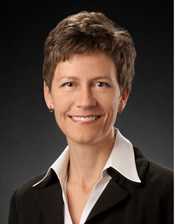
Lisa M. Lee, PhD, MA, MS is the Executive Director of the Presidential Commission for the Study of Bioethical Issues. Lee, who did her undergraduate work at the University of Wisconsin at Whitewater, earned a PhD from Johns Hopkins University, an MA in educational psychology from the University of Colorado, and an MS in bioethics from Alden March Bioethics Institute at Albany Medical College. She is an epidemiologist and public health ethicist.
The focus of Lee’s current work is public health ethics and the role of deliberation in ethics education. Her prior work at the Centers for Disease Control and Prevention included ethics of public health surveillance, privacy and public health data use, and infectious disease epidemiology. During her 14 year career at CDC, she held several leadership positions, including the agency’s Assistant Science Officer and Director of the Office of Scientific Integrity.
Lee is the lead editor of Principles and Practice of Public Health Surveillance, 3d edition (Oxford University Press, 2010). She has authored numerous publications in both science and ethics and serves as associate editor for the Journal of Bioethical Inquiry and Public Health Reviews. Dr Lee serves on the Executive Board of Association for Practical and Professional Ethics and is an Adjunct Professor at the Center for Biomedical Ethics Education & Research at Albany Medical College, where she teaches ethics. She is the recipient of the 2014 Pellegrino Medal for excellence in bioethics.
Leandris Liburd, PhD, MPH, MA
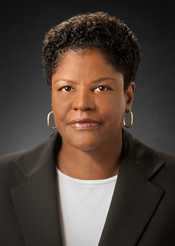
Dr. Leandris Liburd is the Director of the Office of Minority Health and Health Equity at the Centers for Disease Control and Prevention (CDC). In this role, she oversees the work of CDC’s Office of Women’s Health, Diversity and Inclusion Management, and Minority Health and Health Equity. In addition, she provides agency leadership, direction, and accountability for CDC’s policies and programs to ensure they are effective in improving women’s and minority health. She also serves as the agency’s principal advisor on health equity issues with the Department of Health and Human Services, other federal agencies, national organizations, academic institutions, and the public.
Dr. Liburd is a respected public health leader who has over the course of her career championed community health promotion, chronic disease prevention, community engagement, eliminating health disparities, and addressing the social determinants of health. She has worked in public health at the local, state, and federal levels, and has held a variety of leadership positions at CDC since joining the agency in 1987.
Dr. Liburd has published extensively on community-based public health approaches to chronic disease prevention and control, the influence of culture and gender on health beliefs and behaviors, and racial and ethnic health disparities. In 2010, she published her first edited volume Diabetes and Health Disparities: Community-Based Approaches for Racial and Ethnic Populations which serves as a key resource for those interested in socio-ecological approaches to reducing diabetes disparities.
Dr. Liburd holds a Bachelor of Arts degree from the University of Michigan at Ann Arbor, a Master of Public Health in health education from the University of North Carolina at Chapel Hill, and a Master of Arts in cultural anthropology and a Doctor of Philosophy degree in medical anthropology from Emory University.
Melissa T. Merrick, PhD
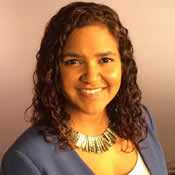
Melissa T. Merrick, PhD, is a Behavioral Scientist with the Surveillance Branch in the Division of Violence Prevention (DVP) at the National Center for Injury Prevention and Control (NCIPC). Her major research interests focus on the etiology, course, and prevention of child maltreatment. In particular, much of her current work examines safe, stable, nurturing relationships and environments as they relate to child maltreatment prevention. Dr. Merrick serves as the Lead Scientist for the Adverse Childhood Experiences (ACE) Study in DVP and as a Subject Matter Expert for Child Abuse and Neglect. She is also a coauthor of the National Intimate Partner and Sexual Violence Survey (NISVS) 2010 and 2011 Summary Reports, interested primarily in violence experienced in childhood and adolescence.
Dr. Merrick received her BA in Psychology from the University of Pennsylvania in 2001. She then completed a 2-year National Institutes of Health (NIH) Intramural Training Award Fellowship at the National Institute of Child Health and Human Development (NICHD) in the Section on Social and Emotional Development. Dr. Merrick received a MS and PhD in Clinical Psychology from the San Diego State University/University of California, San Diego Joint Doctoral Program in Clinical Psychology, where she served as a Program Coordinator for the San Diego site of the Longitudinal Studies on Child Abuse and Neglect (LONGSCAN) Consortium. Prior to joining the CDC, Dr. Merrick was an NIH-funded Postdoctoral Fellow at the University of Miami Child Protection Team (CPT) involved in a multi-site program of research that examined child maltreatment risk and protective factors in families evaluated by CPTs across the state of Florida.
Judith Monroe, MD, FAAFP
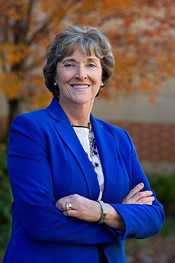
Judith Monroe, MD, FAAFP, joined the CDC Foundation as president and CEO in February 2016. Over her career, Monroe’s professional focus has centered on the intersection of primary care and public health. Prior to joining the CDC Foundation, Monroe worked for six years with the U.S. Centers for Disease Control and Prevention (CDC), as a deputy director and served as director of the Office for State, Tribal, Local and Territorial Support (OSTLTS). In that role, Monroe oversaw key activities and technical assistance that support the nation’s health departments and the public health system. Before joining CDC, Monroe served as the state health commissioner for Indiana from 2005 to 2010. She was president of the Association of State and Territorial Health Officials (ASTHO) from 2008 to 2009. Monroe has served on many national advisory committees and boards, such as the Public Health Accreditation Board, Global Health Leadership Council, Robert Wood Johnson Foundation Public Health Leadership Forum, the Institute of Medicine’s Roundtable on Population Health, and the National Advisory Committee for the Indiana University Richard M. Fairbanks School of Public Health.
Melanie Nadeau, PhD, MPH
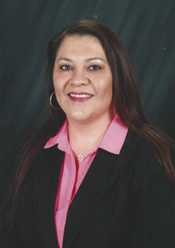
Melanie is an enrolled citizen of the Turtle Mountain Band of Chippewa in Belcourt, North Dakota. She graduated from both the Turtle Mountain Community High School and the Turtle Mountain Community College. She received her undergraduate degree in psychology from the University of North Dakota and a Masters in Public Health in community health education with a concentration in health disparities from the University of Minnesota. She recently completed her PhD in Epidemiology social behavioral track program at the University of Minnesota School of Public Health. Melanie is a community engaged scholar and has worked 13 years on various research projects within the American Indian community. Melanie is the Operational Director at the American Indian Public Health Resource Center housed at North Dakota State University and leads a team that has successfully engaged a multitude of tribal health stakeholders from across the region. She also serves on the Turtle Mountain Band of Chippewa Indians Research Review board, the American Public Health Association American Indian/Alaska Native/Native Hawaiian board and as chair of the North Dakota Public Health Association American Indian section. Melanie has a wealth of experience working in community health education and research and is dedicated to improving the health and well-being of Native communities. She has been married for 24 years and has 1 daughter. In her free time she enjoys attending cultural events and hosting cook-outs with her family.
Vivian W. Pinn, MD
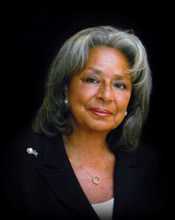
Vivian W. Pinn, MD, was the first full-time director of the Office of Research on Women’s Health at the National Institutes of Health (NIH), and was associate director for research on women’s health (NIH), positions she held from 1991 until her retirement in 2011. She came to the NIH from Howard University College of Medicine, where she had been professor and chair of the Department of Pathology since 1982, and had previously held teaching appointments at Harvard Medical School and Tufts University. She has received numerous honors and recognitions, and has presented her perceptions of women’s health and sex/gender research, minority and women’s health and health disparities, as well as challenges in biomedical careers, to audiences both nationally and internationally.
She is a fellow of the American Academy of Arts and Sciences and was elected to the National Academy of Medicine (formerly the IOM) in 1995. A graduate of Wellesley College and the University of Virginia School of Medicine, she received her post-graduate training in Pathology at the Massachusetts General Hospital. She has held leadership positions in many professional organizations, including that as President of the National Medical Association. Dr. Pinn currently serves on the Board of Trustees/Advisors of Thomas Jefferson University and Tufts University School of Medicine, and is a member of the Committee on Women in Science, Engineering and Medicine of the National Academies. Lectures in women’s health and/or health disparities named for her have been established at the National Institutes of Health, the Women’s Health Congress, and the National Medical Association.
Maria Lourdes F. Reyes, MD, MPH
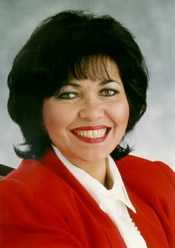
Dr. Maria Lourdes F. Reyes, MD, MPH is the Director of the United States and Border Programs for PCI. She is the Project Director for the HRSA funded Healthy Start Level 3 project and is the Principal Investigator for the CDC Reach project. Dr. Reyes is a physician with specialty in Pathology and Cytopathology and trained at St. Louis University and was a research fellow at Massachusetts General Hospital/Harvard Medical School and Georgetown University. Dr. Reyes has pursued a Masters in Public Health with concentration in Health Services Administration and Management (May 2002) and graduated with highest honors and was awarded most outstanding graduate (John Hanlon Award) with induction into the Phi Kappa Phi National Honors Society. She is also a Faculty at San Diego State University Graduate School of Public Health. Dr. Reyes has held many local, statewide and national leadership positions including: President of the California Division of the American Cancer Society (2000-2001). She has several scientific publications. Dr. Reyes has received many honors including “One in a Million” award from the ACS, California Division; the San Diego County Public Health Champion award for her work with CBHS; Outstanding Alumnus of the UCLA Anderson School of Management Health Care Executive program, National Achievement award in Medicine and Education by Filipinas Magazine, an International Magazine; and Community Health Improvement Partners Outstanding Community Partner Award. Dr. Reyes’ personal mission statement is: “I am dedicated to the realization of human potential through servant leadership.”
Rochelle Rollins, PhD, MPH
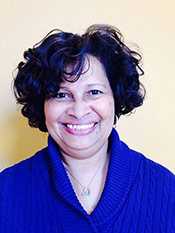
Dr. Rochelle Rollins has worked for 25 years at the local, state, and federal level on health care and social service issues related to vulnerable populations and the social determinates of health. In the U.S. Department of Health and Human Services (HHS) Office of Disease Prevention and Health Promotion (ODPHP) she leads the federal team for Healthy People 2020, is a liaison for several topic areas including Injury and Violence Prevention, and co-chairs the Public Awareness and Prevention Subcommittee of the HHS Task Force to Prevent and End Human Trafficking. Prior to her work in OPDPH, Dr. Rollins co-led anti-trafficking projects in the Administration for Families and Children and was the project lead for the development of the Stop.Observe.Ask.Respond to Human Trafficking training (SOAR) for health care and social service providers.
In the HHS Office of Minority Health Dr. Rollins served as the Director of the Division of Policy and Data for six years. In that role she led efforts to improve health disparities research coordination, performance measurement, and data collection including chairing the National Partnership for Action to End Health Disparities federal team and advancing oral health policy projects.
In the area of research, Dr. Rollins served as the Special Assistant to the Deputy Director of the NIH/National Cancer Institute and was the Research Director of the Multicultural AIDS Coalition in Boston, Massachusetts.
Dr. Rollins received her Bachelor of Science from Wellesley College, her Master of Public Health from Boston University, and her doctorate from Brandeis University’s Heller School for Social Policy and Management where she was a Pew health policy fellow.
Rosetta E. Ross, PhD
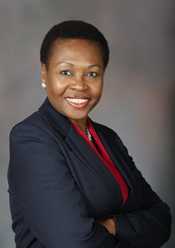
Rosetta E. Ross is professor of religion at Spelman College where she led revision of religious studies toward study of diverse traditions, discourses, and perspectives. She has held taught at colleges and seminaries in the United States and, internationally, in Zimbabwe, The Netherlands, and Ghana. Ross is board chair of The Daughters of the African Atlantic Fund, convenes the United Methodist Church Women of Color Doctoral Scholars Program, and serves on the editorial board of Black Theology: An International Journal. Ross led the historic 2012 and 2014 consultations of African and African Diasporan Women in Religion and Theology. She was a convener for the Women and Religion and the Womanist Approaches units of the American Academy of Religion (AAR), an AAR Academic Relations Committee member, selection chair and faculty for the Forum for Theological Exploration’s doctoral fellowships, board member of the College of St. Benedict, and United Methodist Church Bioethics Task Force member. Ross has published widely on women in the Civil Rights movement, including the book Witnessing and Testifying: Black Women, Religion, and Civil Rights. In addition to more than 40 articles she co-edited three volumes: Unraveling and Reweaving Sacred Canon in Africana Womanhood (with Rose Mary Amenga-Etego), Proceedings and Reflections: The 2012 Consultation of African and African Diasporan Women in Religion and Theology (with Evelyn L. Parker), and The Status of Racial-Ethnic Minority Clergywomen in the United Methodist Church (with Jung Ha Kim). Rosetta Ross is married to the Reverend Ronald S. Bonner who leads The Lutheran Church of the Atonement. They reside in Atlanta.
Alan E. Simon, MD
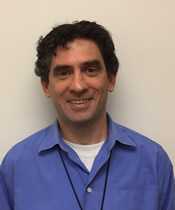
Alan Simon is a medical officer in the US Department of Health and Human Services Office on Women’s Health. His work encompasses a variety of areas within women and girls health, including bullying among girls, the impact of adverse childhood experiences in girls, and opioid misuse. Prior to coming to the Office on Women’s Health in 2016, Dr. Simon was a medical officer at the National Center for Health Statistics, a branch of the Centers for Disease Control and Prevention for ten years. As a part of the Infant, Children, and Women’s Health Statistics Branch, he authored over 45 publications in the areas of both adult and child health services and epidemiology, worked closely with the Agency for Health Care Research and Quality on the National Healthcare Quality and Disparities report, and was a key member of a teams to design and implement health care surveys. He received a BA in Economics from Cornell University and an MD degree from Columbia University College of Physicians and Surgeons. He completed his residency in Pediatrics in 2004 at Children’s National Medical Center in Washington, DC. After residency, he was a Robert Wood Johnson Clinical Scholar at Johns Hopkins University during 2004-2006.
Pattie Tucker, BSN, MPH, DrPH
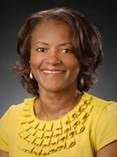
Pattie Tucker, BSN, MPH, DrPH is Director of CDC’s Office of Women’s Health. She is recognized as a subject matter expert in the implementation and evaluation of culturally appropriate interventions to address social determinants of health in vulnerable populations. Dr. Tucker’s career spans from clinician for women and children to consultant on evidence- and practice-based strategies designed to promote healthy lifestyles and disease prevention domestically and internationally. She spent over 10 years serving vulnerable populations including Medicaid recipients’ and others seeking services at a county health department and healthcare at an urban teaching hospital. As a nurse program specialist with a state public health department she provided guidance to a statewide network of nurses and social workers working with older adults needing assistance with navigating various public services and health delivery systems. Dr. Tucker has worked internationally with the Center for Infectious Diseases in Zambia, Namibia Ministry of Health and Social Services National HIV Sentinel Serosurveillance study of pregnant women, and in Sierra Leone to assist in the Ebola outbreak. For almost a decade Dr. Tucker served on the National Academies of Sciences, Engineering, and Medicine Roundtable on the Promotion of Health Equity and the Elimination of Health Disparities.
Dr. Tucker has co-authored several book chapters and published peer-reviewed articles focused on intervening on the social determinants and evaluation of interventions designed to eliminate racial and ethnic health disparities. She holds a Doctorate of Public Health from the University of AL at Birmingham in Maternal and Child Health Epidemiology, a Master of Public Health in Policy and Management from Emory University, and a Bachelor of Science in Nursing from Florida A & M University.
Jo Valentine, MSW
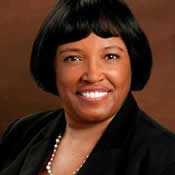
Jo A Valentine is the Associate Director for the Office of Health Equity in the Division of Sexually Transmitted Disease Prevention, Centers for Disease Control and Prevention. A social worker by academic training and personal vocation, Ms. Valentine began her Public Health career in 1986 as an AIDS Prevention community educator and street outreach worker. In September 1991 she joined the Centers for Disease Control and the Division of Sexually Transmitted Disease Prevention. During her tenure at CDC she has held a number of positions, all of them in keeping with her commitment to social service. Currently her primary CDC responsibilities include: 1) leading efforts to reduce STD disparities in the United States and promote health equity, 2) overseeing the Tuskegee Health Benefits Program, and 3) managing the Tuskegee University Bioethics Center Presidential Apology Commemoration Project. In these roles she leads and coordinates multi-disciplinary teams and workgroups and provides technical assistance for intervention development and program implementation for disadvantaged and under-served populations. Ms. Valentine provides subject matter and technical expertise to promote and advance community-engaged approaches in public health work across CDC, at other federal agency partners, and with state and local health departments, non-governmental organizations, and academic institutions. She received her Bachelor’s Degree in Social Work from the University of Texas at Austin in 1982, and her Master’s Degree in Social Work in 1995 from the Clark Atlanta University School of Social Work.
Rueben C. Warren, DDS, MPH, DrPH, MDiv
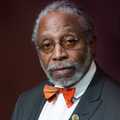
Dr. Warren is Professor & Director of the National Center for Bioethics In Research and Health Care at Tuskegee University, as well as the Adjunct Professor of Public Health, Medicine and Ethics & Director of the Institute for Faith-Health Leadership at the Interdenominational Theological Center in Atlanta, Georgia. From 1988 to 1997, Dr. Warren served as Associate Director for Minority Health at the Centers for Disease Control and Prevention (CDC). During the years 1997 to 2004, he was Associate Director for Urban Affairs at the agency for Toxic Substances and Disease Registry (ATSDR) and 2005 to 2009 he was Associate Director for Environmental Justice CDC/ATSDR. He was the Director of Infrastructure Development for the National Institute on Minority Health and Health Disparities within the National Institutes of Health in Bethesda, MD from 2005 to 2007. Prior to joining CDC, Dr. Warren served as Dean and Associate Professor of the School of Dentistry, Department of Preventive Dentistry and Community Health, at Meharry Medical College in Nashville, Tennessee. Currently, Dr. Warren is also a Clinical Professor, Department of Community Health/Preventive Medicine, Morehouse School of Medicine, Adjunct Professor, Department of Behavioral Sciences and Health Education, Rollins School of Public Health, Emory University, both in Atlanta, Georgia and Adjunct Professor in the School of Dentistry and School of Graduate Studies at Meharry Medical College in Nashville, Tennessee.
His extensive public health experience at community, state, local, national, and international levels range from clinical and research work in the Lagos University Teaching Hospital in Lagos, Nigeria, to heading the Public Health Dentistry Program at the Mississippi State Department of Health.
Shaunta S. Wright, MPH
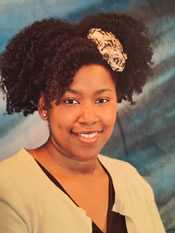
Shaunta Wright is a Health Scientist on the Program Evaluation Team in the Program Development and Quality Improvement Branch. Specializing in program evaluation, Ms. Wright oversees and conducts several CDC evaluations aimed to address STD disparities among youth and MSM populations.
Prior to joining CDC, Ms. Wright was a Project Manager for the Georgia Center for Oncology Research and Education, Pharmacy Technician at Grady Health System’s Main Outpatient Pharmacy, and Graduate Research Assistant for the Georgia Tobacco Policy Project.
Ms. Wright has a Master’s Degree in Public Health, Certificate in Non-profit Management and Bachelor’s Degree in Biology from Georgia State University. She is a member of the American Evaluation Association and the Georgia State University School of Public Health Alumni Board.
Ms. Wright is a past recipient of the Atlanta Business Chronicle 40 under 40 Award. She has also received CDC’s NCHHSTP Honor Award for her collaborative work with the Program Collaboration and Service Integration Evaluation.
Kathleen S. Yep, PhD, MA
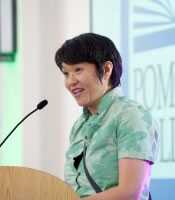
Kathleen S. Yep is a Professor of Asian American Studies at Pitzer College (of the Claremont Colleges) who researches cultural politics, feminist/antiracist pedagogies, and critical public health. She is the author of Outside the Paint: When Basketball Ruled at the Chinese Playground (Temple University Press, 2009) and co-authored Dragon’s Child: The Story of Angel Island (HarperCollins, 2008) with award-winning author Dr. Laurence Yep. Her writing has appeared in numerous peer-reviewed journals, including Metropolitan Universities, Ethnic and Racial Studies, Frontiers: A Journal of Women Studies, Journal for Civic Commitment, Sociology of Sport Journal, and the Asian American Policy Review, and in edited anthologies such as Democratic Dilemmas and Womenʻs Lives. A specialist in oral historiography, she advised a community digital archive funded by the California Council of the Humanities called “API Women, Faith, Action: Fourteen Oral Histories of Asian Pacific Islander women and their faith-based activism.” Funded by the Carnegie Foundation and California Campus Compact, Yep was awarded a two-year faculty fellowship in the “Service Learning for Political Engagement Program” to teach classes on community health and nonviolent social change. In addition, the Bonner Foundation, the Weingart Foundation, Project Pericles, and a Pitzer College-Mellon grant have funded social documentation projects with Asian immigrant and refugees and Pacific Islander communities in Southern California. Raised in Northern California, Professor Yep received her B.A., M.A., and Ph.D. in Ethnic Studies from the University of California, Berkeley. She was a University of California President’s Post-Doctoral Fellow at the University of California, Santa Cruz. Awarded Pitzer College’s Scholar-in-Residence, Dr. Yep is currently researching community wellness beside Asian and Pacific Islander communities in Southern California and Hawai’i.
- Page last reviewed: August 24, 2017
- Page last updated: August 24, 2017
- Content source:


 ShareCompartir
ShareCompartir